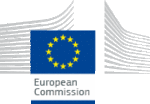|
|
| 13 dec 2019 |
08:24 |

|
European Green Deal vague on pesticides, genetic engineering
The Green Deal presented by European Commission President Ursula von der Leyen on Wednesday (11 December) avoided two controversial agricultural issues: genetic engineering and pesticide limits. EURACTIV Germany reports.
|
|
The Green Deal, unveiled earlier this week, called for “an increased level of ambition to reduce significantly the use and risk of chemical pesticides, as well as the use of fertilisers and antibiotics.”
The Commission said it “will identify the measures, including legislative, needed to bring about these reductions”. However, it said any decision would be “based on a stakeholder dialogue,” suggesting a long debate may still be lying ahead before new measures are taken.
Critics say several hot agriculture issues have been watered down in the final Green Deal communication.
A previous version included a 50% reduction in pesticides by 2030, as well as new reduction targets for fertilisers. The final document, however, only mentions a “significant reduction” in pesticides and fertilisers.
A section devoted to new gene-technological processes in plant breeding was also obviously changed. An earlier version of the Green Deal stated that the Commission wanted to adopt “measures to develop innovative ways, including new genomic techniques”.
The breeding of new organisms using genomic technologies, such as the CRISPR technique, is very controversial.
The European Court of Justice decided in July 2018 that manufactured plants are still to be considered as genetic engineering. In the event that the new EU Commission was to focus on genome techniques, this would not only be a statement against the court’s decision, but it could also be a step away from applicable consumer protection laws, according to Green MEP Martin Häusling.
Such an approach could mean that plants bred by new technologies would be exempted from both the risk assessment by the EU Food Safety Authority (EFSA) and the labelling obligation, he told EURACTIV in an interview.
“Excluding the new breeding methods from genetic engineering regulation runs counter to the precautionary principle,” said Häusling.

|
|
|
|